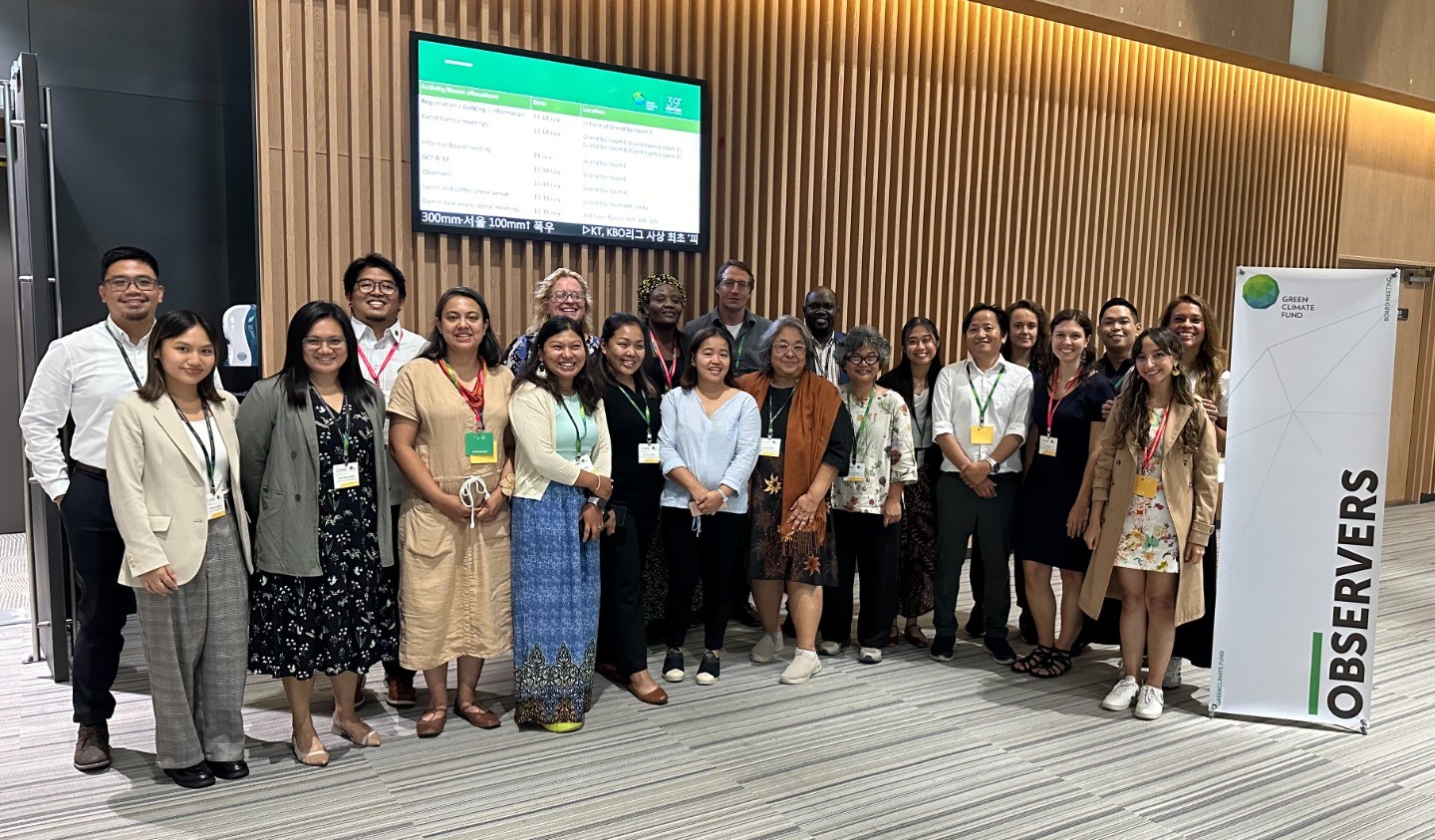
In 2024, I had my first opportunity to attend and engage in the Board meeting of the Green Climate Fund (GCF), representing Prakriti Resources Centre (PRC) from Kathmandu, Nepal. As someone leading the Gender and Resilience theme at PRC, this experience deepened my understanding of how the Fund decides on climate projects and policies and its mechanisms, mainly how it integrates gender justice in its decisions.
The GCF is the world’s largest multilateral climate finance institution, established in 2010 under the United Nations Framework Convention on Climate Change (UNFCCC). It aims to support developing countries in reducing greenhouse gas emissions and adapting to climate change impacts, aligning with the Paris Agreement.
This Fund is very different from other multilateral Funds. I liked the fact that the decisions of the Board are made by an equal number of members representing the developed and developed countries. The country-driven approaches, gender mainstreaming in its programming, and a strong emphasis on transparency impressed me a lot. I also learnt that the GCF makes an effort to allocate balanced funding for mitigation and adaptation while strongly favoring Small Island Developing States (SIDS), Least Developed Countries (LDCs), and African States in their adaptation actions.
To date, Nepal has secured US$112.1 million for various climate projects. This is a much-needed resource to respond to the growing climate impacts in the country. While the government needs to work on accessing more resources, it must prioritize implementing the projects at hand with greater effectiveness and impact. I also learnt that another strength of GCF was providing direct access to resources from the Fund. This helps strengthen human resources and institutions in low-capacitated countries like Nepal. Nepal has accredited the Alternative Energy Promotion Centre (AEPC), National Trust for Nature Conservation (NTNC), and Nepal Investment Mega Bank Limited (NIMB) as a direct access entity to the Fund. Some other institutions are in the process. Thanks to the Ministry of Finance, which is the focal point of the GCF for promoting national institutions.
My interest and engagement with the GCF began through the PRC’s work on gender-just climate solutions. After conducting country case studies in South Asia, we developed recommendations for the GCF to better implement its Gender Policy and Gender Action Plan. These were also submitted to the GCF’s gender team, paving the way for further involvement.
In 2024, I had the privilege of attending two GCF Board meetings at its headquarters in Songdo, South Korea. As a representative of Civil society organizations (CSOs), I had a firsthand view of how the board functions, makes decisions and collaborates with its network of observers, including CSOs.
I was amazed to see the crucial role played by CSOs in the GCF’s operations. The GCF stood out for its inclusivity. The Board is required to grant access to the representative of the Accredited CSOs into the Board room. Accredited observers include representatives from civil society, gender constituencies, indigenous peoples, and local communities. The CSO representatives, called the Active Observers, can deliberate in the board proceedings. CSOs coordinate among themselves to build a common position before the deliberation. I had the opportunity to contribute to shaping some of the interventions based on my work experience. This process was very exciting and a huge learning opportunity for me. I also observed how the common position of CSOs can make a difference in the GCF board meetings.
Beyond the formal meetings, I also engaged in numerous bilateral discussions with the GCF – including the Secretariat, the Independent Redress Mechanism Unit, the Independent Evaluation Unit, the Office of Sustainability and Inclusion, the Gender Unit, and others. These interactions allowed us to address concerns, bridge gaps before and during the board meetings, and influence ongoing projects and policies for their betterment. This engagement exemplifies how the observer network amplifies marginalized communities’ voices and ensures meaningful participation in the GCF’s decision-making processes.
Participating in the GCF Board meetings was an informative and motivating experience. It enhanced my understanding of global climate finance and reinforced the importance of civil society’s role in advocating for equitable and inclusive climate solutions. Also, at the national level, CSOs should play their role as a watchdog to ensure compliance, transparency, accountability, and meaningful community engagement in GCF-funded projects and beyond.
As we prepare for the 41st Board Meeting of the GCF, I remain committed to amplifying the voices of marginalized communities and ensuring gender justice climate actions.